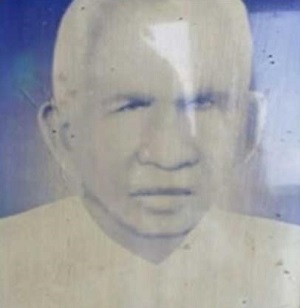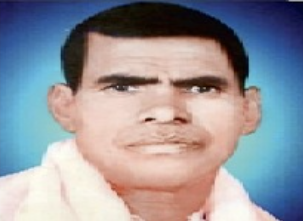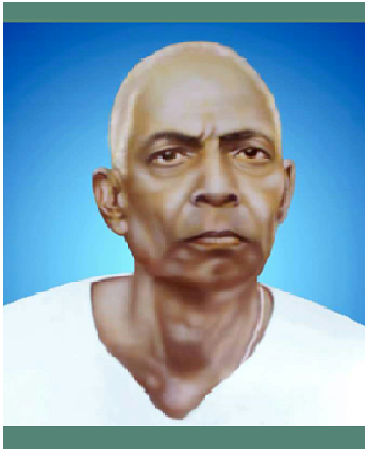People and Personalities of Rajnandgaon District
People and Personalities of Rajnandgaon District
The big stories often make the headlines of our historical narratives, but history is not only about the landmark events - it finds shape and character in the myriad events that led up to a flashpoint of change. An attempt to discover and document stories of people, events, and places linked to the freedom struggle of India at the micro level of the district has led to the creation of a Digital District Repository. Stories in this section can be broadly classified under - People & Personalities.
Jethuram Nishad
 Jethuram Nishad was born in 1905 in Parasghat, Mohla, and exhibited exceptional intelligence from a young age. His rebellious disposition caught the attention of the British authorities as he actively participated in the freedom movement. In 1932, he fearlessly voiced his opposition against prohibition, resulting in his arrest in Bemetara.
Jethuram Nishad was born in 1905 in Parasghat, Mohla, and exhibited exceptional intelligence from a young age. His rebellious disposition caught the attention of the British authorities as he actively participated in the freedom movement. In 1932, he fearlessly voiced his opposition against prohibition, resulting in his arrest in Bemetara.
Meanwhile, in Parasghat, the Thanedar of Manpur informed the villagers about Gandhi's forthcoming visit to the fort. Eager to join the event, Jethuram sought permission to attend, but the Thanedar adamantly denied his request. Jethuram staunchly opposed this decision, leading to a heated altercation with the Station House Officer (SHO). As a consequence, he was sentenced to six months of imprisonment and fined Rs 15. This incident greatly worried his father, who sold jewellery to settle the imposed fine. Jethuram encountered his inaugural incarceration, enduring several days without proper sustenance. Eventually, he was sentenced to serve six months in Central Jail, Raipur.
Following India's independence, Jethuram Nishad engaged in social work and did much constructive work for society. He received a commendation in the form of a copper plate from the Government of India in 1972, recognizing his remarkable contributions to the freedom struggle.
Vidya Prasad Yadav
 Vidya Prasad Yadav was born on 10 November 1911, in Ghodeghar, a small village located in the dense forests of the Chhuriya development block, about 44 kilometers away from Rajnandgaon, Chhattisgarh during the freedom struggle. Shankar Prasad Yadav and Uttara Yadav were his parents. He excelled in education and later engaged in agricultural work. Vidya Prasad spread awareness in various villages of the Chhuria area, encouraging the people of Vananchal to do Satyagraha and raise slogans against the British.
Vidya Prasad Yadav was born on 10 November 1911, in Ghodeghar, a small village located in the dense forests of the Chhuriya development block, about 44 kilometers away from Rajnandgaon, Chhattisgarh during the freedom struggle. Shankar Prasad Yadav and Uttara Yadav were his parents. He excelled in education and later engaged in agricultural work. Vidya Prasad spread awareness in various villages of the Chhuria area, encouraging the people of Vananchal to do Satyagraha and raise slogans against the British.
Influenced by the thoughts of Mahatma Gandhi, Vidya Prasad Yadav started awakening the public against the British in the surrounding villages. He closely worked with District's freedom fighters namely, Thakur Pyarelal Singh, Lotan Singh Thakur, Kanhaiyalal Agarwal, Damodardas Tiwari, Govardhan Lal Verma along with Chhuria region's freedom fighters Vishram Das Bairagi, Tulsi Prasad Mishra, Visheshwar Prasad Yadav, Bahur Singh, Ramadhin Bhagwan. His core area was villages of Chhuria tehsi where he did the work of mass awakening and boycott of foreign goods through Pad Yatra.
In 1939, at the age of 28, he participated in the Jungle Satyagraha, protesting against the British forest policy. Despite facing lathi charges and arrest by the British, he remained steadfast in his convictions, resulting in a sentence of one year and nine months rigorous imprisonment. After his release from jail, he continued to actively participate in the freedom struggle. Inspired by the Bhodan movement of Acharya Vinoba Bhave, he donated 25 acres of land to the landless and inspired others to join the movement. Many big farmers also gave their land to the landless, encouraged by his example.
Vidya Prasad Yadav passed away in May 2002, leaving behind a legacy of bravery and dedication to the cause of Indian independence.
Founder of labour movements in Chhattisgarh
 Thakur Pyarelal Singh was a lawyer by profession,an Indian freedom fighter against British rule and the founder of labour movements in Chhattisgarh. He led three workers' movements in RajnandgaonRiyast in 1919-1920, 1924 and 1937. He was also conferred with the honorary title of "Tyagmurti", which means "epitome of sacrifice".
Thakur Pyarelal Singh was a lawyer by profession,an Indian freedom fighter against British rule and the founder of labour movements in Chhattisgarh. He led three workers' movements in RajnandgaonRiyast in 1919-1920, 1924 and 1937. He was also conferred with the honorary title of "Tyagmurti", which means "epitome of sacrifice".
In 1916, he met the cotton mill workers based in Rajnandgaon. He learned that the workers were mistreated by the British officers and that they had to work 12 hours each day. Their plight made Thakur Pyarelal start an organization to help the workers. In 1909 he began SaraswatiPustkalaya in Rajnandgaon. In 1920, Rajnandgaon Mill Workers, led by Thakur Pyarelal Singh started a strike that lasted more than 37 days. This was India's first long-term strike and it managed to reduced the worker's working hours. With the creation of the non-cooperation movement by Mahatma Gandhi, he left his legal practice and began to campaign for Indian independence from Britain. Many students left Raj-sponsored public schools during the non-cooperation movement, and many lawyers abandoned their practices. Many Indian national schools were established during this period under Thakur Pyarelal's supervision, including the Madhyamik School in Rajnandgaon.
Source :
- Raghvendra Kumar Dhruw, Contributor for CCRT
- Pankaj Singh Rajput, Contributor for CCRT
- Azadi Ka Amrit Mahotsav
Last Modified : 8/19/2024
This topic provides information about People and P...
This topic Provides information about Personalitie...
This topic provides information about People and P...
Provides information related to People and Person...
